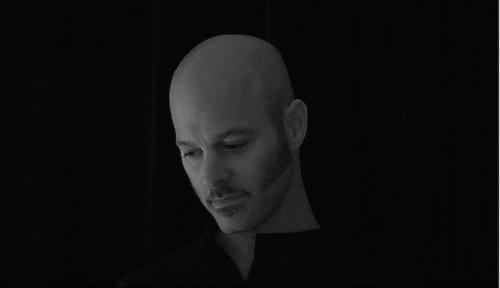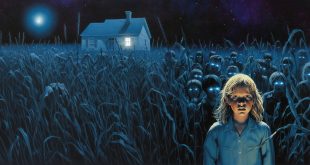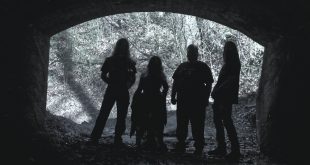Craig Wedren has built an extensive profile across music, TV and film. As a composer, some of his best-known credits include the State, Anchorman, School of Rock, The Whitest Kids U Know, and Wet Hot American Summer. This skillset wouldn’t be catalyzed, however, without a foundation comprising substantial musical perspective. Wedren would hone that understanding through his formative time fronting Shudder to Think, an acclaimed indie rock quartet that, much like composing, has continually proven influential in his musical endeavors to this day. To bridge the gap between these two roles, Craig reached out to me to highlight his career progression.
“It was fascinating,” exclaims Craig, recalling his Washington, DC proving grounds of the mid-80s. Having originally grown up in Cleveland, Ohio, the singer-songwriter relocated to the city for his junior and senior years of high school. During that time, the post-hardcore genre was gaining prominence, and Wedren promptly took hold. “I got there just in time for what has come to be known as Revolution Summer, in between Rites of Spring and Embrace.” He then expounds on the shift in musical climate, first noting a fondness for those acts, as well as Bad Brains’ seminal album, I Against I. “Hardcore was turning into something less conservative and rigid…which really suited me and the kinds of music I enjoy. Everything from psychedelic pop to experimental rock to hardcore.” Eventually, Wedren aimed to form his first band in this new city, but not without headway. He auditioned for a few local bands, to be kicked out of each soon after, simply on the grounds of creative differences. “Everybody was used to just screaming all the time (laughs)! It just wasn’t my thing. But it turned out that there was this guy at my school whose band had just lost their singer to college. When I auditioned, I don’t know if any of us were that interested in each other, but after a few practices, it really started sounding interesting.” That band became Shudder to Think, who harnessed an integral presence within the latter part of the decade and into the next. Wedren finds pertinence in his reflection of that period, having recently wrapped production of a new Wet Hot American Summer season, which is set in 1991. While he praises the 90s for its boom of alternative artistry, he also considers it bleak and, at times, bittersweet. Ultimately, this linking to his current projects served as part of a healing process. “I don’t usually bask in the music and culture of that era, but I have been lately. It’s been cathartic.” He then admits, “I tend to bitch and moan, like a lot of musicians do, and get like, ‘Oh, when Nevermind got popular, that was the death knell of freedom and creativity.’ But going into it, there’s so much beautiful music and so many utopian young people,” adding, “We were sarcastic, but we were making interesting and varied music.” Wedren continues to highlight the era’s positive aspects, particularly, touring alongside affluent artists, and equating the band’s progression to, as he calls, ‘having a very nice seat on the bus.’
From his experience playing in a band, Wedren only found it sensible to translate those proclivities into composing. In the process, he’d involved one of his pivotal band mates early on. “I’ve always had these parallel creative personas growing up. I got my first four-track recorder when I was 15 years old. Actually, Nathan Larson from Shudder to Think, who’s a film composer now—he and I would hang out after school at my house, and do these weird experimental, ambient recordings, with loop pedals and whatever cheap synths we could get our hands on.” Wedren goes on to state the smoothness of transition, highlighting the band’s involvement in a handful of student films by the time of their popularity. Their break of sorts came from their contribution to First and Last Reich, written by a friend of the band, Jesse Parish. “The main character in his film had a bunch of oldies 45s, so we wrote music based around oldies genres. That opened up a lot of doors for us.” he recalls. Amazingly, he and Parish continue to collaborate to this day; the two had finished work on the upcoming Netflix series, Glow. For happenings such as these, Wedren feels fortunate to have this level of success after noting his 90s indie peers struggle to make the jump. “When we start bands in our teens and twenties, we kind of say ‘screw you’ to taking direction, you know what I mean? But we still collaborate and listen to ideas which may be very far from our own, and I’ve enjoyed that.” In addition to composing projects, Wedren also has a solo album in the works, the first in six years after WAND. Regarding its writing process, he hints, “If I were to play these songs for you on an acoustic guitar, they would be the most direct (pauses for a moment)—”’song’ songs that I’ve ever written,” he continues. “But the production style of the album is very abstract and experimental. It’s kind of like two poles pulling at one another. For me, it creates this exciting tension between really strong and graspable melodies, and little fragments of lyrics mixed with oceanic [textures]. Sort of like a fusion of two extremes—traditional songs for soundtracks, like movies, mixed with the sandbox of a modern studio.”
As I noted his incorporation of composing chops into his solo work, Wedren accepted my assessment. “That’s great, I like to hear that! I don’t really distinguish between the two, personally. I feel like a lot of musicians in their twenties and thirties, with the internet, don’t distinguish them in the way that was so frustrating in the 20th century, when people were like, ‘Are you in a rock band, or are you a composer?’ And I wouldn’t know how to answer that, because I don’t consider the two particularly different. So, it’s really nice to be able to notice that in my records, too.”
Craig Wedren Socials:
 Music Existence Because of Music, We Exist
Music Existence Because of Music, We Exist




